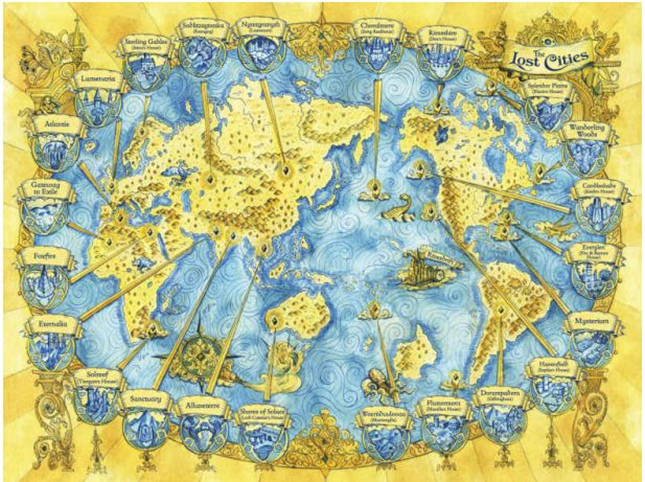Reading Pictures
The Invention of Hugo Cabret
Ask me what my favorite book was, anywhere from 2nd to 5th grade, and I would have said “oh I don’t really have a favorite book”. And then after further inquiry as to what few books I liked the most, one of the books I would have listed out would be The Invention of Hugo Cabret. I was reminded of this book a couple days ago, and after a quick reread I found myself mildly confuzzled. Often when reflecting on childhood favorites, I end up disappointed. Underwhelmed. I dust it off, to discover just another thing I had built up in my head. The intricate plots and characters I remember; actually kind of basic. Usually just another best seller that knows exactly how to target children. However, I had a different experience this time.
The Invention of Hugo Cabret is poorly written. Of course, as a children's book it follows a more simplistic sentence structure, but even within these walls there are many creative opportunities, which this book took none of. The plot is extremely interesting, including a couple twists, but unnecessarily fast paced and never getting too in depth. Perhaps another quality targeted toward an elementary audience, but I felt a lack of time was spent with each character, leading it to be less attaching. In addition, the characters are completely unrelatable. These are all qualities I picked up on the more recent read, which after I looked up smiling, happy it was “as good as I remember”.
What
I remember was the story starring an independent, twelve-year-old orphan,
taking place in the 1920s of London. After a father that died in a fire and an
uncle who drowned in a river, Hugo lives inside of the walls of London, keeping
up his uncle's job as to remain under the radar. He is a timekeeper and
maintains all of the city clocks. At the same time, he is collecting mechanical
parts, in order to finish the automation his father was repairing, and finally
discover the message the automation will write. The owner of a tollbooth
catches him stealing parts from him, discovers and takes the book of drawings
Hugo’s father made to fix the automation, and soon after Hugo starts working
for him in order to win back his book. However, after the owner’s goddaughter
steals the book, the owner (suspecting Hugo) kicks him out. Hugo manages to
complete the machine without the book, but discovers a keyhole needed to wind
it up. A key on the chain of the goddaughter. They finally wind it up, and it
makes a drawing signed with the tollbooth owner's name. And that is only the
first two hundred pages. Because in the next three hundred it escalates to the
point where Hugo ends up in a jail cell.
The
layers of past and present of metaphors and intricacies of plot are 100% still
there. But standing by itself, definitely not worthy of a lasting top ten
review. After reading and pondering and reading some more, I have reached a
partial conclusion as to what manipulation the books does that makes it so
good. From the get-go, it is emotionally attaching and triggers sympathy. It
has a hook that forces you to read it to the end. The world, which existed a
hundred years prior, triggers curiosity about the past. But most of all, it is
a picture book. Not like a Dr. Suess book. The
Invention of Hugo Cabret alternates between telling the story with a page
of a picture and pages of words. For about every 2 pages of words is about 4
pages with pictures. The pictures aren’t complementing the words, they continue
the story and are meant to be read by the audience. They also provoke analysis
and interest. Almost like a combination between the most thought-provoking open-ended movie and a decent book. Imagine Harry Potter as a book only with full
page black and white ink drawings. Imagine sitting there, flipping through page
after page. It feels like sitting in an old library, sunlight streaming through
the windows, and a sense of timelessness. Reading The Invention of Hugo Cabret is one of the most unique experiences
I have ever had reading a book. And in another eight years, I’ll open it up and
read it again.
Eve Anderson


Comments
Post a Comment